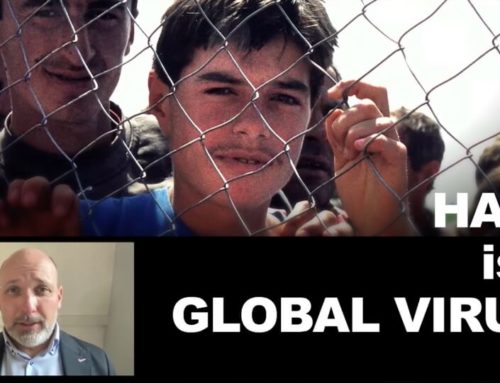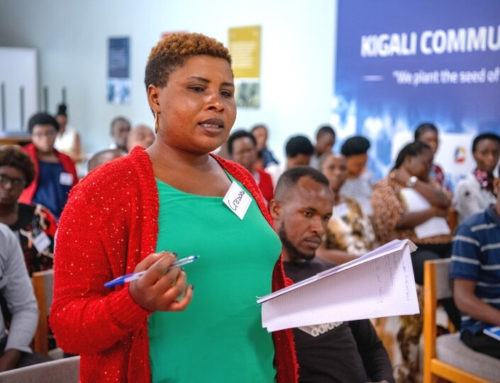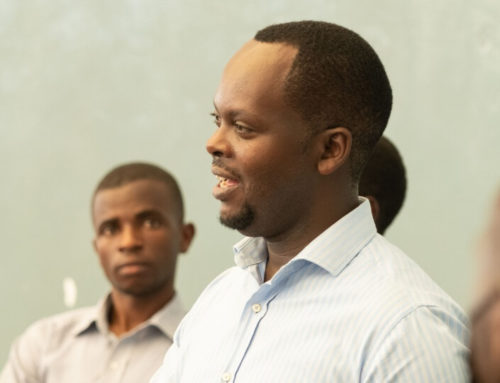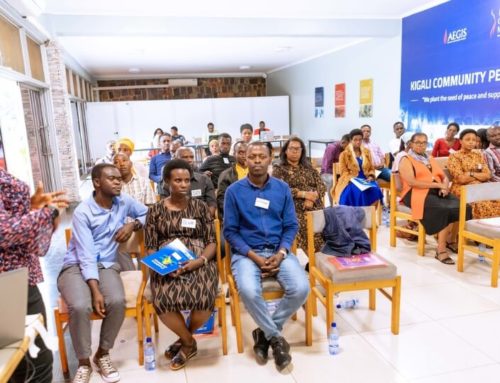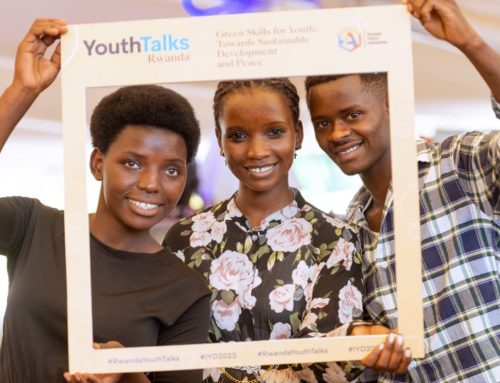![]() 14 June 2013 – The Swedish Embassy in Rwanda today announced funding for an ambitious new Rwanda-wide peace-building programme.
14 June 2013 – The Swedish Embassy in Rwanda today announced funding for an ambitious new Rwanda-wide peace-building programme.
The Rwanda Peace Education Programme is designed to counter behavioural risk factors for genocide by promoting social cohesion, pluralism, personal responsibility, empathy, critical thinking and action to build a more peaceful society.
Centring on a mobile exhibition tour to 20 different locations around the country over the next three years, it will involve radio programming, education and training workshops, arts events, public debates and performances, directly engaging with tens of thousands of Rwandans.
It will work especially with those most influential in shaping attitudes and behaviour in society – educators, civil society organisations, decision-makers, and of course the youth – aiming to empower its audiences and visitors with the tools to help build long-term peace. Key to making change, these sectors will also play a central role in evaluation of the programme’s success – which, it is hoped, will ultimately help to inform developments in Rwanda’s National Curriculum.
The Rwanda Peace Education Programme will be led by the Aegis Trust for genocide prevention, which for the past four years has conducted peace-building education at the Kigali Genocide Memorial, set up in 2004 at a site where some 250,000 victims of the 1994 genocide lie buried. Aegis will deliver the programme in partnership with Rwanda’s Institute of Research and Dialogue for Peace (IRDP), the USC Shoah Foundation and Radio La Benevolencija (RLB). Supporting partners include the Rwanda Development Board (RDB), the Netherlands Institute for Genocide and Holocaust Studies (NIOD) and the University of Texas Libraries (UTL). The programme will be undertaken in coordination with Rwanda’s Ministry of Education, and with district authorities for each location in which programme events are held.
“Despite many years of structural investment in Rwanda, there has until now been little international support given to work directly reducing the behavioural risks of genocide,” says Swedish Chargé d’Affaires Maria Håkansson. “The Rwanda Peace Education Programme is the first step towards changing that, and I’m proud that Sweden has led the way in funding it. A brilliant collaboration involving both Rwandan and international partners, it is designed to help heal the trauma and divisions that were both a contributing factor to – and a consequence of – the 1994 genocide.”
“The Aegis Trust is delighted that Sweden has chosen to fund the Rwanda Peace Education Programme,” says Aegis Chief Executive Dr James Smith. “We are also hugely grateful to our programme partners for their support and collaboration, and to the Rwandan Government for their foresight in identifying the need to integrate peace-building into educational policy. Building on much work over the past decade, this is a massive first step on the road to major developments for genocide prevention and peace-building in Rwanda and the wider region in coming years.”

